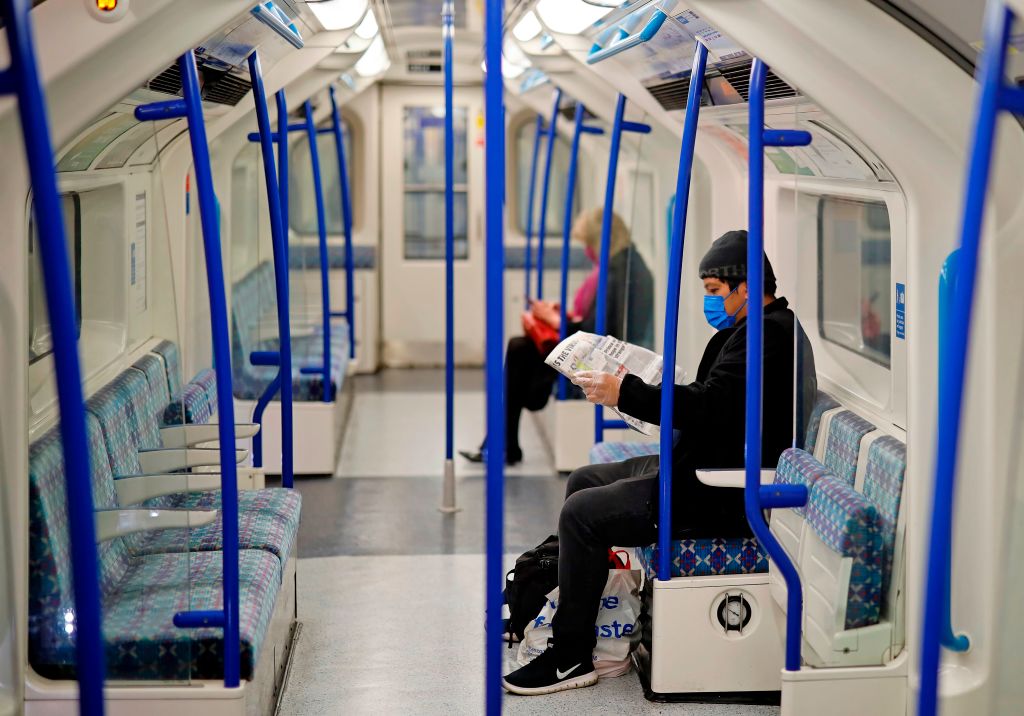Just how many of us have Covid-19 and are not even aware of it? It’s a question at the heart of this crisis. Epidemiologists are deeply divided, and no-one truly knows. Yesterday came news from China that 130 of the 166 people most recently found to be infected with SARS-CoV-2 there have proved to be asymptomatic. That is to say they had no symptoms whatsoever which would have led them to suspect that they were infected.
This is consistent with research
from the village of Vo’Euganeo in Northern Italy where all 3,000 inhabitants were tested for the virus early in the Italian outbreak. There, between 50 and 75 per cent of those infected had no symptoms either.
The proportion of people who are asymptomatic matters hugely because of the implications for the mortality rate and infection rate of the general population. We know that the cases which are being recorded are only the tip of an iceberg – since the UK moved into the ‘delay’ phase a couple of weeks ago we are no longer even testing people unless they present at hospital with severe symptoms. What we don’t know is how large that iceberg is. If it is as big as claimed by modelling by an Oxford team led by Professor Sunetra Gupta – which suggested that up to half the UK population could already be infected – then there may be no point in locking down Britain or any other country: Covid-19 is a chronic disease which has already spread through the population but will be of limited concern because it is not very deadly.
That is the point made by Tom Jefferson and Carl Heneghen of Oxford University’s Centre for Evidence-Based Medicine, who did not mince their words when they wrote on the centre’s website last Monday: ‘Lockdown is going to bankrupt all of us and our descendants and is unlikely at this point to slow or halt viral circulation as the genie is out of the bottle. What the current situation boils down to is this: is economic meltdown a price worth paying to halt or delay what is already amongst us?’
In reaction to the latest data from China, Jefferson goes even further. Noting that the data sample is very small, and thus there is room for some doubt, he tells the BMJ: ‘And even if they are 10 per cent out, then this suggests the virus is everywhere. If — and I stress, if — the results are representative, then we have to ask, “What the hell are we locking down for?”’
In short, we are in lockdown because Jefferson’s rivals at Imperial College have told the government that it is the only viable way to deal with Covid-19. It was their paper
on Monday 16 March, claiming that 250,000 Britons would die if the government stuck to its ‘herd immunity’ strategy, that led to a sharp change in course and inexorably to full lockdown a week later. The Imperial team, led by the ubiquitous Professor Neil Ferguson, has the government’s ear, while the Oxford team is less involved in policy-making.
There is only one way to find out who is closest to the truth – Oxford or Imperial – and that is to test a randomised sample of the UK population for antibodies to see how many of us have had the virus. Matt Hancock said on the Today
programme on Friday that Porton Down has the facilities to undertake 500 very high quality antibody tests a day – which is enough capacity to undertake a randomised study within a few days. It is a study we desperately need now.
This article is free to read
To unlock more articles, subscribe to get 3 months of unlimited access for just $5








Comments
Join the debate for just £1 a month
Be part of the conversation with other Spectator readers by getting your first three months for £3.
UNLOCK ACCESS Just £1 a monthAlready a subscriber? Log in